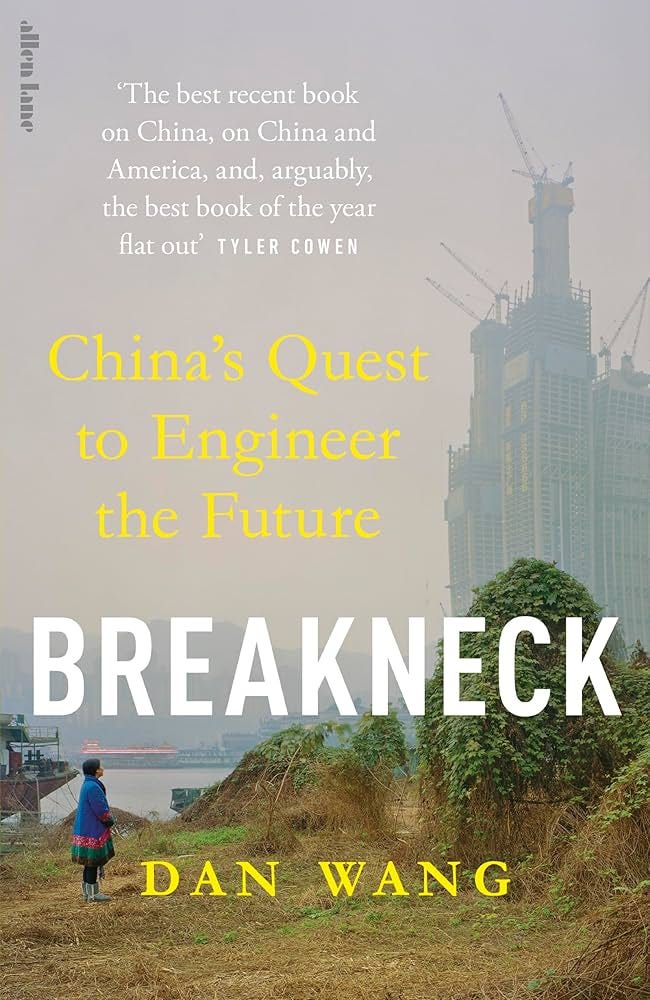What I Read this Week
Chinese engineers vs American lawyers; the decimation of the US middle class; and the failure of carbon capture and storage.
Books
Breakneck: China’s Quest to Engineer the Future by Dan Wang
Wang’s thesis is that China is an ‘engineering society’, while the US is a ‘lawyerly’ society. He claims that the Chinese state is very good at getting things done quickly and efficiently – largely because the CCP assesses potential projects from a birds eye view without considering the negative externalities a project might have on people and planet. The American state, on the other hand, is good at protecting individuals (especially if they’re wealthy), but terrible at infrastructure investment.
The obsession with megaprojects is, argues Wang, the legacy of the CCP’s ‘Leninist’ origins, which has led to a focus on modernization above all else (originally, because you need to reach a mature stage of capitalist development before moving from state capitalism to socialism). The CCP leadership believes that building physical infrastructure quickly and efficiently will generate growth, as well as spurring technological progress, pacifying the population and ensuring the strength of the Chinese state at home and abroad.
As a result, they focus much less on the demand side of the economy. The absence of comprehensive welfare, healthcare, or pensions systems is particularly striking. Wang quotes Xi Jinping as saying he doesn’t want workers relying on unemployment insurance because it makes them ‘lazy’ (pp. 35). Taxes are also very low; Wang argues this is because the CCP leadership is sensitive to the argument that there should be no taxation without representation.
The absence of a social safety net and low taxation mean that Chinese households save a lot, and these savings are recycled into investment both at home and abroad. At home, this investment focuses on megaprojects, infrastructure, and housing. As Wang puts it, “[t]he political system of the engineering state rewards construction”. These construction projects aren’t always necessary and often have negative consequences for people and planet. And channelling people’s savings into a real estate bubble turned out not to be such a great strategy for development (*cough* Evergrande).
But this attitude has allowed the Chinese state to achieve some incredible things. A few stats:
China has a longer high-speed rail network than the rest of the world put together.
Keep reading with a 7-day free trial
Subscribe to Grace Blakeley to keep reading this post and get 7 days of free access to the full post archives.

